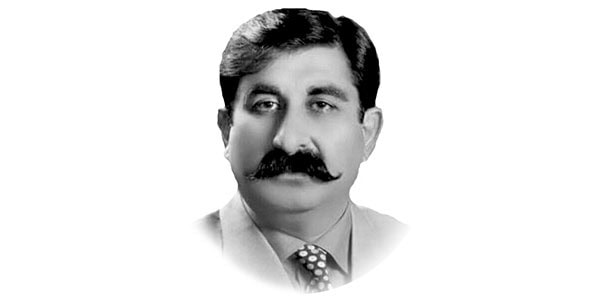The fantasy of British monarch
ONE of the truisms or platitudes, really, is that Queen Elizabeth II is the only Monarch everybody has ever known.
I have been to Buckingham Palace and Windsor Castle thrice. I have witnessed untouched royal glory.
The glorious British Monarchy presents itself as a mysterious and magical inheritor of an endless past.
Undoubtedly, the United Kingdom has touched the magnificence during her over seven decades long unmatched reign.
Would Britain be better off without the great mother Queen? The Monarchy is to provide a kind of space and style, a kind of mystique, a kind of secular religion, in which people feel some sort of kinship and community with each other.
The Queen Elizabeth II proved herself consistent and enduring. She died in Scotland, ending a reign of seventy years seven months and two days, which began in Winston Churchill’s second premiership, in the early 1950s.
She is succeeded by her son, who will now be called King Charles-III. The Queen’s death has initiated a period of sustained mourning in the United Kingdom, and elsewhere around the world, and has kicked off debates about the value of constitutional monarchy.
The British Monarchy really is apolitical, as its proponents often claim, what admiration for royalty has in common with religion, and how the British are likely to view their new head of state.
In the 19th Century, it seemed to be better than autocracy on the one hand and revolution on the other.
Even as Queen Victoria’s powers were stripped down, she reinvented the possibility of an authority that had not worked before.
Is there a way of actually constructing an identity to which you belong, which is above the egotistical abrasiveness of politics?
That’s what the Queen represented and that’s what King Charles-III has to carry on. Very interesting and astute.
The Monarchy, like everything else, is necessarily a political choice. The Queen ostensibly stuck very rigorously to political neutrality.
Was she for the EU, was she for leaving the EU, was she against leaving it? There was a hullabaloo when she wore a hat with the colours of the EU flag, complete with gold trimming.
The unexamined texts of her reign are her Christmas messages. I thought they would be the most anodyne, vanilla, absolutely non-political statements.
But, very famously, in the 1983 Christmas Day message, she said that the most serious problem the world had was the division between the rich and the poor countries.
She was known to be in favour of sanctions against apartheid South Africa, which is why Nelson Mandela loved her so much.
The Queen actually extended the royal prerogative as coded, refined, or nuanced. The Queen was absolutely a decent last.
It seems an extraordinary paradox that someone from that kind of remote, esoteric and mandarin-like distant world should be able to communicate spontaneously with ordinary people.
I am sure King Charles III will be able to do it, too. Following the footsteps of the great Queen Elizabeth II if King Charles III is able to do it, Prince William will be able to do it in future too.
In the early and mid-1990s, the Queen risked being overshadowed by lady Diana, “the People’s Princess”, and the Queen’s uncharacteristic missteps in the aftermath of Diana’s death were a sign of her inability to gauge the public mood and to empathize with the very “un-British” levels of emotionalism that surrounded the event.
In 1997, Diana’s death exposed what looked like a dangerous disconnect between Monarch and the people.
Since then, the Monarchy has continued to reinvent and readjust while all the time relying on the Queen as a beloved symbol of continuity.
But the task of creating a thoroughly modern Monarchy remained a challenge, as the friction between the Royal Family and Harry and Meghan makes clear.
The new king has work to do. It is interesting that among the Queen’s final public duties was to accept the resignation of Boris Johnson as Prime Minister and to ask Liz Truss to assume the job in his stead.
How King Charles will be able to perpetuate the Monarchy’s symbolic role in modern British life?
Charles became king at the moment his mother died. Post demise of the Queen we witness the long-scripted series of rituals that will mark the end of one reign and the beginning of the next.
A formal proclamation of the new king is imminent, and it will be followed by a period of mourning in advance of the Queen’s state funeral; and then eventually by Charles’ coronation.
When Elizabeth was crowned in 1953, many contemporaries openly asked what the coronation ritual – in essence, the same ritual that was developed and refined in medieval Europe in the 8th, 9th and 10th centuries – meant in the modern world of the 1950s.
We ask similar questions about the coronation of Charles III. There are already growing signs of discontent within the post-imperial Commonwealth of nations that retained the Queen as head of state which includes countries from Canada to Australia and places in between.
How many more of these nations, in the absence of the personal affection and admiration for Elizabeth II will now choose to separate themselves from the crown and become republics?
With the departure of charismatic Elizabeth II, we might also see a political reckoning within Britain itself.
The modern Monarchy is very much a national symbol, albeit one that has not always accurately reflected the more complicated realities of the nation.
—The writer is editor, book ambassador political analyst and author of several books based in Islamabad.










